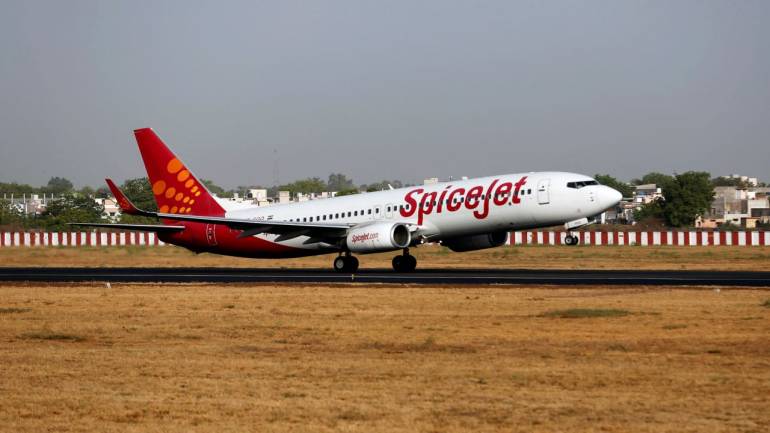The airline added 12 planes in Q3, compared to one in the first two quarters
After adding aircraft to its fleet at the fastest pace ever in the third quarter, SpiceJet hopes to make the most of a lower crude, stable currency and better fares, in the coming quarters.
In the third quarter, the low-cost airline added 12 new planes - nine Boeing 737 MAX 8 aircraft and three Q400s. Its fleet now stands at 74 aircraft. In the first two quarters, it had added just one.
The newfound pace will continue in the fourth quarter, with the company lining up seven Boeing MAX and one 737 freighters to add to its fleet.
The expansion matters as the new aircraft promise to be more fuel efficient, giving a fillip to the airline's margins.
The fuel-efficient MAX will improve overall operating economics of the aircraft by 8-9 percent, said Santosh Hiredesai and Chalasani Teja of brokerage firm SBI Capital Markets.
The fleet expansion already seems to have rubbed off positively on the airline. Its third quarter fuel CASK (cost per available seat kilometer, a measure of cost) was Rs 1.68/ASKM (available seat kilometer, a measure of capacity), "up only 2 percent QoQ while average ATF prices have risen 6 percent during the quarter," said the report.
A clearer picture of the new aircraft's impact will come in the next two quarters. It's "early days to gauge benefit from induction of Max aircraft... While some of this (lower fuel costs in Q3) could be explained by lower fuel burn by the Max aircraft in the fleet (10 out of 74 currently) it is somewhat offset by higher lease rentals. Thus, the jury is still out on the potential benefit of Max aircraft..." said the two analysts.
The airline's total order book includes 205 B737-8 MAX, 20 B737 Max10 and 50 Bombardier Q400 aircraft.
High rentals
The new inductions though also have a flip side; high rentals.
SpiceJet buys aircraft on sale and leaseback model. Under this, it buys an aircraft, sells it to a lessor and then leases it back. This helps it conserve cash and keep debt off its books.
But the 737 MAX have higher lease rentals compared to the older generation aircraft.
"The induction of the 10 737MAX... pushed up lease rentals by ~11 percent to Rs.60/ASKM. As a result, PAT fell 80 percent YoY to Rs 0.10/ASKM from Rs 0.49/ASKM in Q3FY18," said the report from SBI Capital.
That is the reason why most of the brokerages have added a line of caution, even as they reiterated a buy rating on SpiceJet stock.
"We reiterate Buy on improving fuel efficiency, falling non-fuel cost with new fleet addition, and short-haul international market opportunity with Boeing-737-8Max," said brokerage Elara Capital in a report.
The airline's stock ended Wednesday, down 1.03 percent at Rs 77 a share.


















